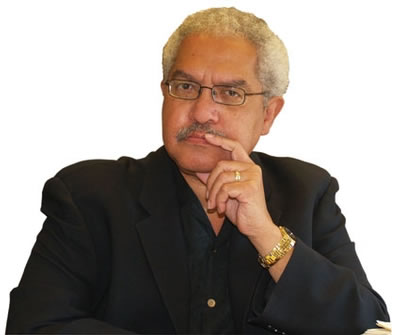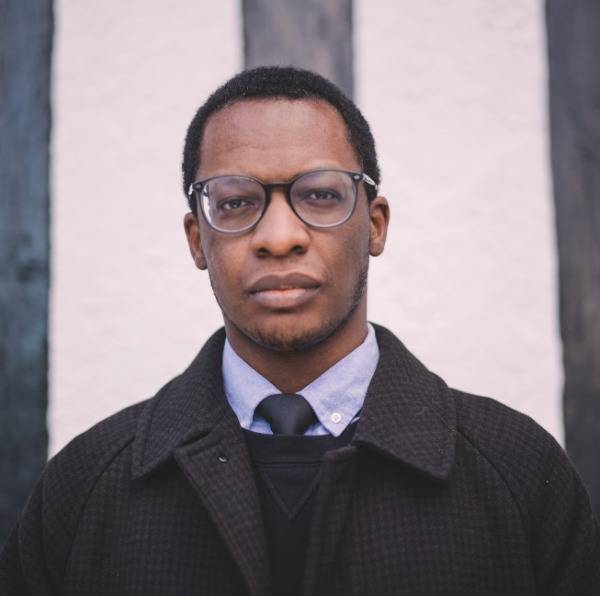Eleven months into his presidency and Barack Obama’s surge to the top, swept along by an historic landslide election victory and global acclaim, has ground, if temporarily, to a halt. Across the world bemusement at his Nobel Peace Prize seems to be giving way to the impression that it amounts to overpraise (given his evident failure to rein in Israel’s expansion of settlements), and represents not a boost to his international standing but an ill-timed endorsement from European social democrats eager for a saviour, less a white dove than an albatross. Domestically he is mired in trench warfare over healthcare, with a newly revitalised right wing ramping up the pressure – rabble-rousing radio shock jocks and Fox TV pundits once again setting the agenda, a protest march in September gathering more than 100,000 to denounce his attempt to “socialise America” – and accusations that his efforts to transform America are ailing. Political analyst David Bromwich, writing in the London Review of Books, suggests that Obama’s legendary consensus-building skills are now looking more like a sign of weakness, that in acting as if he is the leader of no party but America he has conceded ground to the resurgent Republicans, and that the great promise of his initiatives – announced in characteristically magisterial speeches such as those on healthcare and Guantánamo – is lost in a long consultation process, a “dilatory follow-up and the tardy self-defence.”
 Those looking for some insight into the deeper forces at work on this president – arguably both the first black president and the first of a post-racial world – could do worse than consult Professor Manning Marable, sociologist and long-time analyst of American politics. Beyond Black and White, his classic 1995 analysis of America’s racial politics, has just been reissued by Verso, with seven new essays covering the period between 1995’s Million Man March and Obama’s 2008 triumph.
Those looking for some insight into the deeper forces at work on this president – arguably both the first black president and the first of a post-racial world – could do worse than consult Professor Manning Marable, sociologist and long-time analyst of American politics. Beyond Black and White, his classic 1995 analysis of America’s racial politics, has just been reissued by Verso, with seven new essays covering the period between 1995’s Million Man March and Obama’s 2008 triumph.
Marable is convinced that healthcare is make or break for Obama’s ambitious plans to remake America. “He has simply got to win it,” he told me over the phone from his home in New York. “By Thanksgiving it has to happen.” As for the charge that the President has been forced to fatally dilute his healthcare proposals to win cross-party support, Marable, though he favours a universal single-payer system analogous to the NHS, wouldn’t go that far. “This is a watershed moment. It has been 60 years since any kind of national healthcare proposal has even been on the table, and he has a chance to achieve it. It is a critical symbolic moment.” The symbolism far exceeds the specific issue of health. It is about rejuvenating the idea of the public, an idea that was devastated by the rightward swing of the George W Bush years, where cant about individual choice and the honesty of the market obscured the symbiotic relationship between the state and big business.
This is a crucial moment, Marable reminds us, not merely for the political future of a charismatic leader, but for the aspirations for those who put him there. As befits a theorist firmly grounded in the sociology of race, the numbers flow easily into his conversation, and ground his more abstract assertions. And the numbers associated with Obama’s win bear repeating. Last November he gained 67 per cent of the Latino vote, 78 per cent of Jewish votes, and 98 per cent of the black vote. Among the under-30s, he out-polled John McCain two to one. And then there was the astonishing fact, in the very teeth of the accepted wisdom that white Americans, liberal or not, could not bring themselves to vote for a black candidate, that he carried a sizable chunk of white votes too. Marable is still incredulous. “He won Indiana, Indiana! In the south he won Virginia and he won North Carolina.”
The white vote is not only important in establishing that he was not just the ethnic candidate, but in underwriting his claims to be the first president of the post-racial era, a unifying figure who could create a unified country. But none of this would have been possible, argues Marable in the most original of the new essays in Beyond Black and White, had it not been for what he describes as “the defining racialising movement in modern US history”. He is not referring to the civil rights movement, or the Chicago riots, the assassination of Martin Luther King or even Rodney King, but to the devastation wrought on New Orleans by Hurricane Katrina in 2005.
How can Marable argue that a natural disaster put a black man in the White House? Because, although the hurricane itself triggered the crisis, what followed was a distinctly unnatural disaster. The flooding of New Orleans, despite the protestations of President Bush, was entirely predictable – Marable’s essay provides evidence of several warnings in the mass media – and the response from the federal government revealed in graphic detail the way in which the government was unable and unwilling to provide protection for a certain proportion of its citizens, most obviously the largely black and poor residents of the low-lying parts of New Orleans. “In every area,” he says, “from social policy to emergency planning, in terms of efficiency and professionalism, the government was revealed to be bankrupt.” Even before it had been able to rescue the stranded and clean up the dead bodies, the federal government was giving out no-bid contracts to Brown and Root, a subsidiary of the Halliburton Corporation, which famously had close links to Vice President Dick Cheney. “So,” says Marable, “there was graft, inefficiency, racism and classism of the worst sort.”
Even the government’s symbolic response to the crisis was a failure. George Bush flew over Louisiana and observed the damage from Air Force One, but he did not actually visit until weeks later. With thousands trapped and starving in abject conditions in the Lousiana Superdome, FEMA, the federal emergency agency, claimed the roads leading to the stadium were impassable, yet legions of reporters, celebrities and concerned relatives managed to drive right up to it. For Marable it was a kind of domestic Vietnam, where the TV audience were faced with a disaster brought on their own people by the derelictions of their own government. “I remember one CNN reporter walking in the Superdome and seeing a dead body, and then three days later she walked the same route and the body was still there. It was so gross – the dead bodies floating in the water for days was so utterly outrageous that the country was stunned that this could happen in the US.” Bush’s approval ratings never recovered and, as Marable argues, it is this trauma that allowed many white Americans to overcome their fears of a black presidency.
Marable himself has a lot riding on Obama. In part because Obama’s presidency is the culmination of his decades of activism, aimed at persuading America to overcome its “racial chasm” and move beyond the corrosive and self-defeating identity politics of the past. “Historically,” he explains, “it has been impossible for a person of African descent, a black person, to be seen as legitimate in speaking for the entire nation. National identity itself, since the 1790 Naturalisation Act that conferred citizenship only on free white men, has been defined in racial terms. I have spent the past decades arguing to audiences of all kinds that we need a new kind of multicultural politics. To the whites, for example in my book The Great Wells of Democracy, I argued that we could find democratic traditions that would be the foundation for a popular democratic politics that reached out to middle America – and this happened with Obama, white voters came out for him. At the same time I argued to black audiences that we needed to go beyond the parochial politics of race, which is based on the fraudulent concept of race. This is what Obama did in his campaign. He didn’t speak as a black political leader, but as a leader who happened to be black, yet he carried the aspirations of black voters and represented their concerns. His was a black politics which spoke to the nation as a whole, packaged in a way that was not threatening to the white majority. It’s a very clever and effective method.”
Had the legendarily well-read aspirant Chicago senator been following Marable’s work, perhaps? “My wife teases me by saying that Obama clearly reads my stuff. I used to close my public speeches with a quote from Martin Luther King: ‘The arc of the universe is long but it bends toward justice.’ When I heard Obama use that one in his speech I thought, ‘Uh huh’.”
But as unprecedented as Obama’s election was, for Marable it was also inevitable, the consequence of America’s demographic destiny. “I didn’t know it would happen so soon,” he admits, “but I knew it was coming. By 2042, according to the US census, the majority population of the US will be racial minorities. Latinos will be the single largest group. A new form of multicultural politics has to emerge here, and Obama is symbolic of that post-racial world, or at least a world that is beyond black and white.”
In this context the apparent resurgence of the gun-toting, God-fearing, red-baiting Right, the ones who will in all likelihood send Sarah Palin’s autobiography to the top of the bestseller lists, looks, to Marable at least, less like the return of the grassroots Moral Majority, which so successfully dominated politics from Reagan to Dubya, than the last desperate cries of a “putrid, racist, sexist, homophobic” faction of white America unable to accept the demographic facts. “I’d like to say I’m sure of that,” he adds gingerly, “but I can’t. I hope.”
In Marable’s description of the skill and moral conviction with which Obama built the coalition that catapulted him to office – a commitment to public service, to what used to be called civics – there is a distinct tang of humanism. Yet, as we know, Obama made much of his deep religious commitments, and he deploys the full range of rhetorical strategies of the pulpit. These are clearly successful strategies, but is the close intertwining of black politics and the church, a subset of the dubious requirement that all politicians in the US must declare commitment to God, really a good thing for black politics? For all the achievement of Martin Luther King and Jesse Jackson, hasn’t their dominance prevented the emergence of a truly secular black politics capable of measuring up to the challenges of a multicultural America? Why do preachers dominate black politics?
“Let me answer that in 20 seconds,” says the Professor. “The black church has been so important in black politics because blacks were not allowed to vote or express themselves in secular ways. The only social institution conceded to slaves was the church, which therefore became the centre of black civic society, the haven in a heartless world. It was not only worship, but politics, welfare, concert hall and business. Black churches generated and distributed resources. Because black ministers were paid by the church, that is by black people, they were able to be far more militant than anyone relying on a white master. Hence black political radicalism came from the church. Now that is changing, but it’s only been 45 years since the civil rights movement, so of course there is still a very tight connection between black politics and religion. Even when elected officials are not themselves preachers, they – like Obama – learn the language and cultural cues necessary for mobilising people in the idiom of the black church.”
Since Marable is that rare thing in America, a writer who is prepared to write the word “socialist” without feeling the need to follow it immediately with the word “menace”, and an avowed fan of a certain kind of radical tradition represented by Karl Marx and CLR James, I wondered if he looks forward to the emergence of a secular black politics in the US? “Yes, I can see it happening at the local level – it’s not the churches who are winning the battles about education, it is civic organisations, parents, blacks and Latinos. These issues can be framed very well as a secular discourse, because they are informed by a set of values and a commitment to human progress that we can all share, an idea about common work, human interaction and what we all have a right to expect. That really is what I have always been arguing for and it is Obama’s strength.”
Before I can find my big-finish question, Marable beats me to it. “The difficulty with being an American, at least for me,” he says with a distinctly regretful tone, “is that there is such a titanic mix of hope and tragedy. We live with the burden of history constantly denied. Our country, so full of promise, is littered with the sites of atrocities unmarked, and unremembered. Go to Rosewood, Florida, where there was a black town that was wiped out, or “black” Tulsa, where over 2,000 black people were burned out of their homes in 1921, in the first example of a US military plane dropping a bomb on its own civilians, I kid you not!” He can’t suppress a weary laugh. “The state still denies it. There is nothing to mark these horrific things.”
Seemingly recalling Santayana’s dictum about the perils of forgetting history, Marable, currently engaged in writing a new biography of Malcolm X, can’t resist a final comparison. “The police colluded in the assassination of Malcolm,” he tells me. “He was followed and bugged by the NYPD continually. He was shadowed by two dozen officers wherever he went, except on that day at the Audubon Ballroom where there were no police present at all.” How far will he take the comparison? “I would not be surprised at all if someone tried to shoot President Obama. Look at the history of this country. I mean, people tried to kill Gerry Ford, for Christ’s sake! America reinvents itself every day, which is why I love being here and battling here, but it is a struggle, and the right wing has a capacity for violence and hatred that is truly dangerous.”

